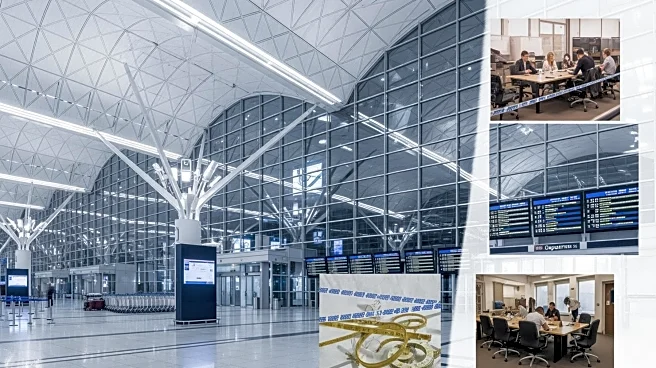What's Happening?
Phnom Penh's Techo International Airport, which opened in September 2025, is being praised for its stunning architectural design. The airport, designed to handle up to 13 million passengers annually, is not
yet operating at full capacity. Despite its beauty, the airport is facing challenges with international transit procedures. A traveler reported a confusing experience while attempting to transit through the airport, noting that while there were clear signs for international transit, the staff seemed unprepared to handle transit passengers. The security checkpoint was well-staffed, but the scanners were not operational, leading to manual checks of luggage. The airport features lounges such as Plaza Premium and Plaza Premium First, but its shopping and dining options are limited.
Why It's Important?
The opening of Techo International Airport is significant for Cambodia's tourism and international connectivity. As a new facility, it has the potential to boost the local economy by attracting more international flights and passengers. However, the reported issues with transit procedures could deter travelers and impact the airport's reputation. Efficient transit processes are crucial for airports aiming to become major international hubs. The airport's ability to resolve these operational challenges will be key to its success and growth in the competitive aviation industry.
What's Next?
The airport management may need to address the operational issues related to international transit to ensure a smooth experience for passengers. This could involve training staff, improving signage, and ensuring equipment functionality. As the airport continues to develop, it may expand its services and amenities to attract more airlines and passengers. Stakeholders, including airlines and tourism authorities, will likely monitor the situation closely to assess the airport's impact on regional travel and tourism.
Beyond the Headlines
The challenges faced by Techo Airport highlight broader issues in airport management and the importance of operational readiness. As airports compete for international traffic, the ability to provide seamless transit experiences becomes a critical factor in their success. The situation also underscores the need for effective communication and coordination among airport staff and airlines to manage unexpected scenarios.











